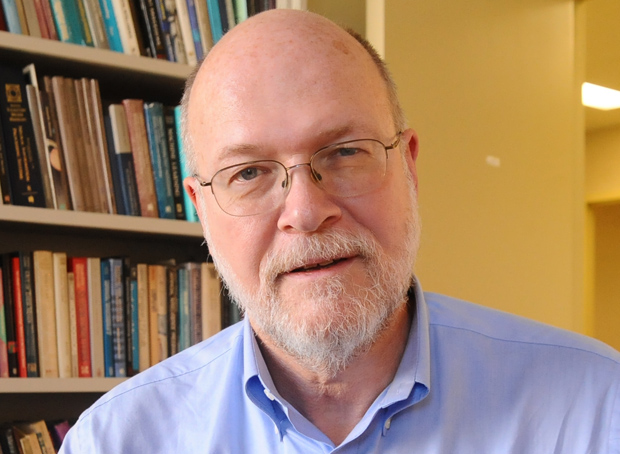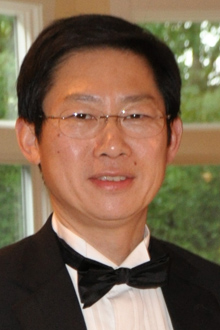David Waltz mentees create memorial fellowship
Aim is to increase participation of women, minorities in artificial intelligence

The late David Waltz: Computer scientist, professor and mentor

Xiru Zhang
Xiru Zhang, MS ’90, PhD ’91, was searching for a thesis adviser, but he found much more in the person of David Waltz -- a nurturing mentor, an inspiring colleague, a giving co-worker and a longtime friend.
Waltz and Zhang worked together for six years while the native of China pursued his doctorate in computer science, simultaneously interacting as professor-student at Brandeis and as senior scientist-research scientist at Cambridge-based Thinking Machines.
“No one had a greater influence on my academic and science research career than David Waltz,” says Zhang, the first person to earn a doctorate in computer science from Brandeis. “He was my mentor, and he was also my friend.”
To honor Waltz, who died on March 22, 2012, of brain cancer, Zhang has made a lead gift to help establish the David Waltz Fellowship at Brandeis in hopes of broadening the participation of women and minorities in the field of artificial intelligence. The fundraising effort is continuing; organizers, led by Brandeis computer science professor Jordan Pollack , hope to secure enough funding to enable recruitment of a new Waltz Fellow every four years.
Like many of Waltz’s other students, Zhang has had a successful career in his chosen field. He used his complex systems knowledge and algorithmic know-how to co-found and serve as chief investment officer at hedge fund firm PHZ Partners for 14 years. Since 2009 he has worked in the same capacity at AlphaSimplex Group, an asset-management company based in Cambridge.
Despite a busy schedule that often began at 5 a.m., Waltz always found time for his students, Zhang recalls, encouraging, supporting and never demeaning them. For a self-described introvert like Zhang, the intimacy of Brandeis and the deep engagement with Waltz proved a dynamic combination.
“In the whole time I knew him, I never heard him raise his voice to his students,” Zhang says. “Some professors push hard and some students like that. His way helped me a lot.”
When Zhang’s idea of developing a universal prediction algorithm for predicting everything from the weather to the stock market stalled, Waltz pushed him to focus his thesis more narrowly.
“He told me, ‘You don’t have to solve all the problems. Try to solve one thing well and that can be an important contribution,’ ” Zhang remembers. “When I could not find a single best algorithm, he suggested, ‘Why don’t you combine all your different algorithms together? You may get your best result that way.’ ”
The result was a thesis on algorithms for predicting protein secondary structures. Interestingly, the findings were published in the Journal of Molecular Biology, instead of a traditional computer science journal.
Waltz taught at Brandeis from 1984-1993 through a unique arrangement: He was appointed as a part-time professor with tenure while also working at Thinking Machines, which developed a search-engine and news-feed capability that is in widespread use on the Internet today.
At Brandeis, Waltz was instrumental in establishing the Volen National Center for Complex Systems, collaborating on the proposal to generate federal funding for the project. He also helped grow the computer science department and its PhD program.
Waltz left Brandeis in 1993 for NEC Research and Columbia University’s Center for Computational Learning Systems. The replacement Brandeis selected was Pollack, a Waltz doctoral student from the University of Illinois. Pollack also had fond memories of his collaboration with Waltz.
“He was always available to me when I was a student and he would often contribute ideas that would expand the ambition of what I was working on,” he recalled.
Last fall Pollack organized a conference at Brandeis to honor his former mentor’s pioneering work in the areas of artificial intelligence and memory-based reasoning. More than 100 people, many of them leaders in the field, attended the Waltz Symposium. The entire event was videotaped; clips are available.
“I invited a lot of big-name people to come – without payment – to honor Dave,” said Pollack, who chairs Brandeis’ computer science department. “The fact that they traveled to Brandeis for the Waltz Symposium indicates a lot of love for him out there.”
For more information or to make a gift to the David Waltz Fellowship at Brandeis, visit the fellowship website.
Categories: Alumni, Science and Technology





